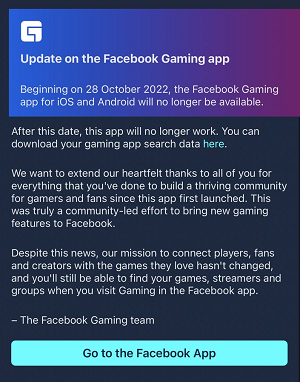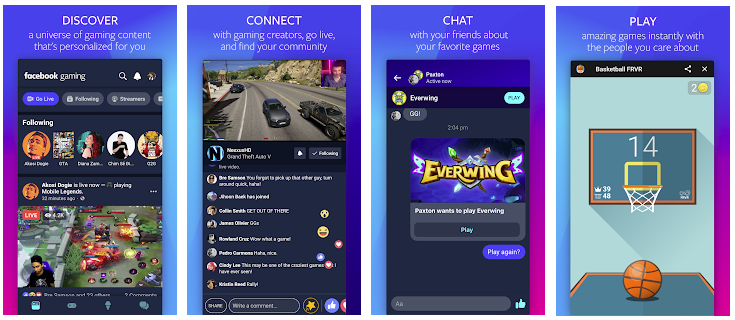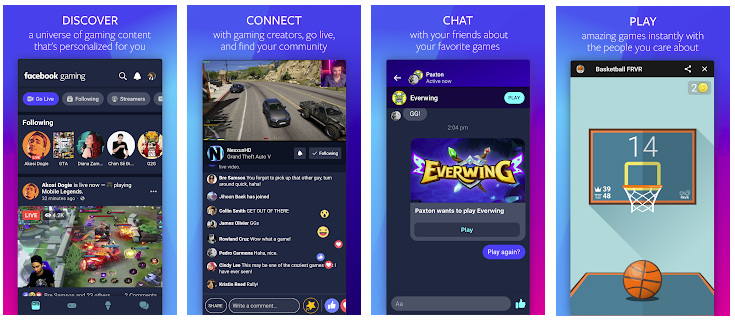The cost-cutting at Meta continues, with the company announcing that it will cease support for its separate Facebook Gaming app as of October this year.

As you can see in this in-app update screen, shared by social media expert Matt Navarra, Meta’s removing support for its Gaming app from October 28th.
“Beginning on 28 October 2022, the Facebook Gaming app for iOS and Android will no longer be available. After this date, this app will no longer work. You can download your gaming app search data here.”
Meta originally launched its gaming app back in 2020, as part of its broader effort to tap into the rising popularity of gaming as a social element, particularly during the pandemic,

As you can see in these screenshots, Facebook Gaming highlights content from gaming streamers, along with group chat functionality, game-based community elements, and simple gameplay options.
The decision to cut the app may actually not mean a lot in the scheme of things, with Facebook itself still hosting gaming content in the main app, which has seen steady growth over the past few years. But clearly, gaming fans are not flocking to the separate app, hence the decision to retire it, instead of continuing to support the option.
As noted, it’s the latest in a series of cost-cutting efforts from Meta, which, like all social platforms, is dealing with the worsening economic downturn, and the expanded impacts on ad spend.
Meta has already halted development of its smartwatch project, ceased production of its Portal smart display device as a consumer product, and delayed the launch of its coming AR glasses product, which had been initially scheduled for release in 2024.
The company also recently told US news publishers that it will not renew exclusive content deals with them, as it shifts away from its dedicated News Tab strategy, while it’s re-allocated resources away from social audio elements that had become a focus on the back of the Clubhouse-led boom.
Meta’s dealing with cost pressures on several fronts, with its VR investments exceeding $10 billion in 2021, and likely to continue rising as it works towards its metaverse vision, while Apple’s ATT prompts have also impacted ad spend to the tune of around $10 billion as well.
Add to this the ongoing economic slowdown, which Meta has flagged as a key concern in its forward looking estimates, and the lingering impacts of COVID on production of its VR headsets, and you can see why Meta is being forced to reassess its staffing and production levels, and rationalize some of its experiments, in favor of revenue-generating options.
To be clear, Meta is still on track to bring in over $120 billion in total revenue for the full year. But the rising costs of building the next stage of connection are set to have a big impact for some time yet – and if Meta can’t produce and sell more VR headsets, it could be an extended period of revenue pain for the social media giant.
Though the development of VR, incidentally, may also have played a part in the decision to cut its separate Gaming app – because really, Meta needs people to be engaging with VR gaming content, and moving to the next stage, rather than focusing too much on the now in this respect.
But again, the real, practical impact will likely be small – it’s more the broader shifts within Meta that are of interest here.
Which could also see other Meta projects fall by the wayside, as it continues to double- and triple-down on its metaverse push.



